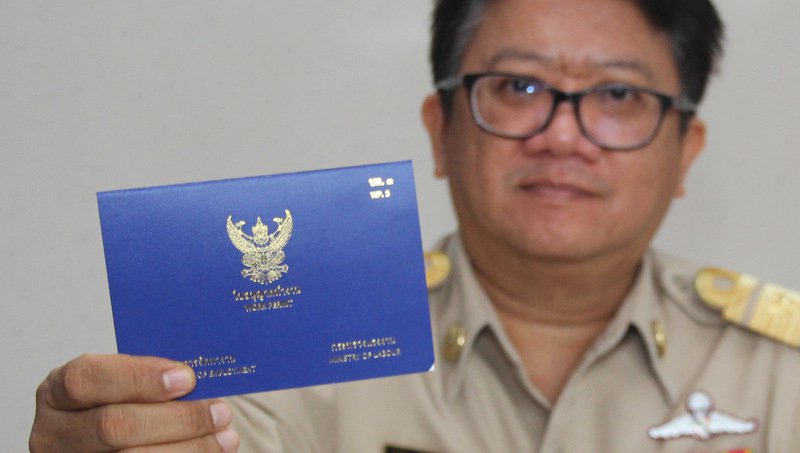 New approach to overseas income aims to spur inflows in to Thailand
New approach to overseas income aims to spur inflows in to Thailand
The Revenue Department is moving towards granting tax exemptions for income sourced abroad that is promptly remitted to Thailand
Mr Pinsai said the department seeks to encourage individuals with foreign income to bring it back and invest in Thailand, which would help raise liquidity and boost the domestic economy.
The Revenue Department is shifting its approach on how it taxes income sourced from abroad.
Rather than taxing every baht of income brought into the country, the department is moving towards granting tax exemptions for income promptly remitted to Thailand, hoping to create momentum for economic stimulation by encouraging capital inflow.
Stimulus goal
According to Pinsai Suraswadi, director-general of the Revenue Department, the agency is preparing to draft legislation to amend the collection of income tax to allow income sourced from abroad to be brought back into Thailand without tax liability. The goal is to accelerate the repatriation of investment funds held by Thais abroad, estimated at 2 trillion baht, to help stimulate the domestic economy.
He said the 2 trillion baht is currently invested abroad in various forms such as land purchases, insurance, or foreign funds, generating annual income of hundreds of billions of baht.
Mr Pinsai said the proposed amendment is being prepared as a ministerial regulation by the Finance Ministry, exempting personal income tax for individuals who reside in Thailand for at least 180 days — whether continuously or not — within a calendar year.
If such individuals earn income, whether that income arises in Thailand or comes from a foreign source, they are generally subject to personal income tax payable to the Revenue Department.
However, the exemption of personal income tax on foreign-sourced income will apply for only two years: the year in which the income is earned and the following year. If the income earned abroad is brought into Thailand in the third year after it was earned, it will be subject to normal taxation.
Currently, the criteria for collecting personal income tax on income sourced from abroad require that, regardless of whether the money is brought into the country in the year the income is earned or in any subsequent year, it is subject to personal income tax payable to the Revenue Department.
This regulation has been in effect since Jan 1, 2024.
Prior to Jan 1, 2024, the criteria for collecting personal income tax on income sourced from abroad stipulated that if the income was brought into the country after the year in which it was earned, it would not be subject to any personal income tax.
Mr Pinsai said the department wants to encourage individuals with foreign income to bring it back and invest in Thailand, which would help increase liquidity and stimulate the domestic economy.
He said if such capital is invested in the stock or bond markets, it would invigorate the economy.
According to Mr Pinsai, the reason for the two-year exemption period is to give taxpayers enough time to prepare for repatriation, especially in cases where the income is earned late in the year (for example, in December), making it difficult to bring it into the country in time for the tax year in which the income was earned.
Therefore, a two-year period is to be allowed: the year in which the income was earned and the following year.
He said the ministerial regulation will not have a retroactive effect for income earned before the regulation is enacted and clarified that the collection of income tax on income sourced from abroad is not a tax imposed on the funds flowing in or out for investment abroad, but rather on the benefits derived from those investments in the form of interest income, dividends, capital gains, and other income.
Residency Rule
The department’s approach to taxing individuals who earn income overseas is not a new concept, as it is based on international tax principles, particularly the residency rule.
This principle is used in tax collection in conjunction with the source rule. If you reside in Thailand for a specified period, then regardless of where your income originates, you are subject to pay tax to the Thai government.
Under the residency rule, Thailand imposes personal income tax on individuals who are considered to be residents — meaning they reside in Thailand for at least 180 days within a tax year (January to December). This applies even if the individual enters and exits the country multiple times, as long as the total stay adds up to 180 days or more within that calendar year. If such a person has income from foreign sources, they are considered to have a tax liability in Thailand.
Foreign-sourced income subject to tax must meet three conditions:
1. The individual must reside in Thailand for a period of 180 days or more — whether continuously or cumulatively — in any given tax year. Such a person is considered to be a resident of Thailand and is therefore liable to pay income tax to Thailand.
2. The individual must have income from abroad, regardless of the country from which it originates.
3. The foreign income must be brought into Thailand. If the income is brought into the country in any particular year, income tax must be paid in that year (this rule remains applicable) in accordance with Section 41 of the Revenue Code, which states that a person residing in Thailand who earns income from duties, work, or business conducted abroad, or from assets located abroad, is subject to income tax under this provision when such assessable income is brought into Thailand.
Double Tax Agreements
However, if foreign-sourced income has already been taxed in the source country, the taxpayer may be eligible to claim a foreign tax credit, provided that such a credit is allowed under the double tax agreement (DTA) between Thailand and the foreign country.
A tax specialist who requested anonymity said in cases where a taxpayer has income from a foreign source and that income has already been taxed in the source country, if the source country has a DTA with Thailand when that income is brought into Thailand, it may be eligible for a tax credit for the tax paid to the source country.
However, the calculation of the tax credit can be complex, and each country that has a DTA with Thailand may have certain specific provisions that differ, resulting in variations in the tax computation details.
According to the source, when claiming a tax credit under a DTA, the tax credit must not exceed the tax liability payable in Thailand.
The highest personal income tax rate in Thailand is 35%. Therefore, if the income tax paid abroad was at a rate of 40%, the Thai tax credit cannot exceed the domestic tax liability, which is capped at 35%.
However, the tax calculation in cases where a tax credit is claimed is more complex. If the taxpayer has both domestic income and foreign income that is brought into Thailand, the calculation will become more complex.
For example, if the taxpayer earns 100 baht in domestic income and another 100 baht in foreign income brought into Thailand — where the domestic income is taxed at a rate of 35% and the foreign income has already been taxed at 40% — the calculation of the allowable tax credit must be based on the total income of 200 baht.
Nevertheless, the source said the calculation of personal income tax must follow Thailand’s progressive tax brackets, based on the amount of income earned in the country. The tax credit claimed must not exceed the amount of tax payable in Thailand.
For deductions and expense claims, whether the income is earned domestically or sourced from abroad, the same criteria apply.
For example, a salary, wages, bonuses and allowances can deduct 50% of expenses, but must not exceed 100,000 baht. As for interest, dividends, and a share of profits, expenses cannot be deducted.
For personal tax deductions, the taxpayer is eligible for a deduction of 60,000 baht, with an additional 60,000-baht deduction for a spouse.
In addition, a deduction for life insurance premiums is allowed for policies with a term of 10 years or more, based on actual costs, but not exceeding 100,000 baht.
Source: https://www.bangkokpost.com/business/general/3041421/new-approach-to-overseas-income-aims-to-spur-inflows



